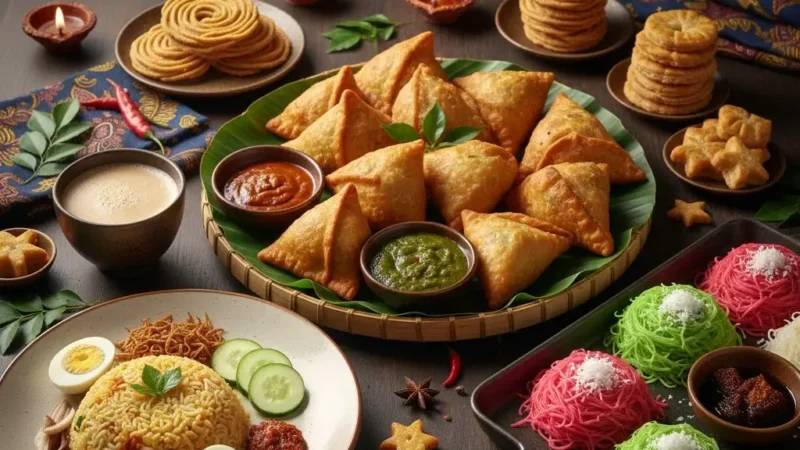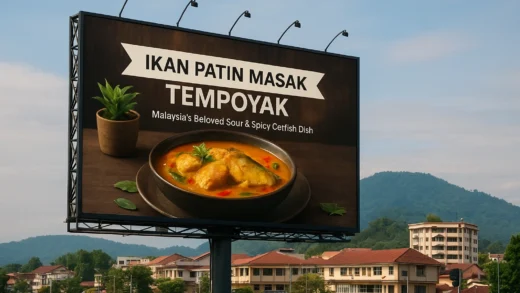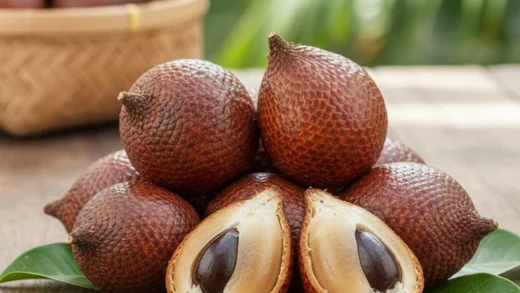Deepavali Recipes with a Malaysian Twist

Deepavali, also known as the Festival of Lights, is one of the most important Hindu festivals celebrated across the world. In Malaysia, it reflects the rich cultural diversity of the country, where Indian traditions blend with local influences. From its origins to the delicious foods prepared during the festival, Deepavali is a time of light, joy, and family togetherness.
Origins and Significance of Deepavali in Malaysia
Deepavali symbolizes the victory of light over darkness and good over evil. Among the Malaysian Indian community, especially Tamils, the festival holds deep spiritual and cultural significance. The name “Deepavali” literally means “row of lights,” referring to the traditional practice of lighting oil lamps, or diyas, in homes to invite prosperity and happiness.
Over the years, Deepavali has become a public holiday in Malaysia, particularly in areas with significant Indian populations such as Penang, Kuala Lumpur, Johor, and Ipoh. It is a festival that celebrates devotion, family, and community harmony.
Traditional Customs and Rituals
Pre-Festival Preparations
In the days leading up to Deepavali, families thoroughly clean and decorate their homes. Kolams (intricate floor designs made with rice flour) are drawn at the entrance, and diyas are placed around the house to welcome Goddess Lakshmi, the deity of wealth. Families also prepare a variety of sweets and savory dishes in anticipation of guests.
Deepavali Morning Rituals
On the morning of Deepavali, devotees perform the Ganga Snanam, a sacred oil bath that symbolizes spiritual cleansing. This is followed by Lakshmi Puja, a prayer ceremony for health, prosperity, and happiness.
Temple Celebrations
Temples play a central role in the festival. In Kuala Lumpur, the Sri Mahamariamman Temple, built in 1873, is a hub of activity with elaborate decorations and rituals. The Batu Caves in Gombak also become a focal point for devotees and tourists, hosting prayers, cultural performances, and vibrant celebrations.
Regional Differences in Celebrations
Penang
Little India in Penang is illuminated with colorful lights, and the streets are filled with the scent of traditional sweets. Cultural performances and traditional dances are common, creating a lively festive atmosphere.
Kuala Lumpur
Brickfields, Kuala Lumpur’s Little India, hosts bustling bazaars where visitors can find festive attire, jewelry, and traditional foods. Temples such as Sri Kandaswamy Temple are beautifully lit, drawing devotees and tourists alike.
Johor
In Johor, communities celebrate with open houses, temple decorations, and cultural performances. Local markets offer a variety of traditional sweets and snacks, blending Indian and local flavors.
Ipoh
Ipoh combines traditional rituals with modern festivities. Events such as the Perak Global Mega Deepavali Expo showcase cultural performances, arts and crafts, and a wide variety of foods, attracting visitors from across the region.
Traditional Foods and Sweets
Food is central to Deepavali celebrations, and Malaysian households often prepare a mix of classic Indian dishes and local adaptations.
Savory Dishes
- Biryani: Aromatic rice with marinated meat and spices.
- Vadai: Crispy lentil fritters.
- Sambar: Spiced lentil soup with vegetables, usually served with rice or idli.
Sweets
- Gulab Jamun: Fried milk dumplings soaked in rose-flavored syrup.
- Jalebi: Crispy spirals of sugar syrup.
- Adhirasam: Traditional South Indian sweet made from rice flour and jaggery.
- Pineapple Tarts: A Malaysian twist combining buttery pastry with sweet-tart pineapple filling.
Decorations and Family Practices
Homes are decorated with kolams and diyas, and families wear new clothes to signify fresh beginnings. Firecrackers are sometimes lit to celebrate, and community open houses are common, where neighbors and friends of all backgrounds are invited to enjoy meals, cultural performances, and festivities together.
Where to Experience Deepavali in Malaysia
- Sri Mahamariamman Temple, Kuala Lumpur: Traditional rituals and vibrant decorations.
- Batu Caves, Gombak: Grand prayers and cultural performances.
- Little India, Brickfields: Colorful bazaars, food, and cultural events.
- Perak Global Mega Deepavali Expo, Ipoh: Combines traditional celebrations with modern festivities.
Conclusion
Deepavali in Malaysia is a celebration of light, culture, and community. The combination of temple rituals, family gatherings, open houses, and festive foods makes it a unique experience that brings people together across generations and cultures. From the traditional sweets to the beautiful decorations, Deepavali is a time of joy, reflection, and togetherness.







Comments are closed.